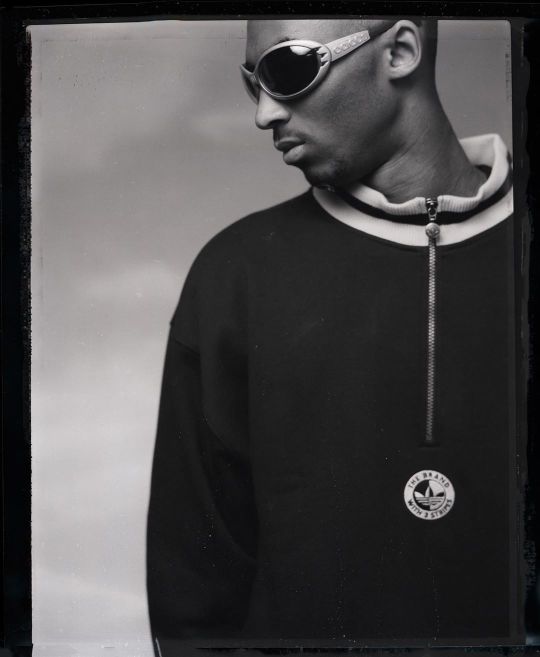Don't wanna be here? Send us removal request.
Text
me: :((
spring: 🌼 ° 🌱 ۫ ☁️ ⊹ 🌷 🕊 * ִ ۫ 🐝 . ° 🌾 * 🌞 ⊹ ❀ 🍃 .🌿 * . 🌻 ° . 𖧷 ࣪ ᳝ ࣪ 🦋. * . ⊹ 🐛 •. * 🐞° ❁ ࣪ ᳝ ࣪ 🍃 .🌈 * . 🐌. * 🌳 ꕥ ᳝🐿️ 🍄 ⊹ 🌱 ࣪ ᳝ ࣪ 🧚🏻♀️ • 💐 * . ✿ ° 🌷 * . 🌲
me: :))
43K notes
·
View notes
Text

Capricorn
December 21 - January 20

Symbol ▪︎ The Sea Goat
Element ▪︎ Earth
Season ▪︎ Winter
Metal ▪︎ Lead
Color ▪︎ Blue & Grey
Ruling planet ▪︎ Saturn
Modality ▪︎ Cardinal
Nature ▪︎ Negative (introvert)
CAPRICORN TRAITS
Full grown adult since age six
The responsible friend
Motivated by duty
Takes a while to warm up to people
Represses any emotion that gets in the way of success
Characteristics
Self-controlled
Tenacious
Patient
Pessimistic
Conservative
Conceited
Careful
Resourceful
Determined
Faithful
Confident
Disciplined
Stable
Wise
Ambitious
Resourceful
Condescending
Responsible
Prudent
Unforgiving
Constant
Sincere

About Capricorn
DO CAPRICORNS LIKE ATTENTION?
Capricorns aren’t consumed by the need for attention, but are not immune to it. They simply don’t indulge in attention-seeking behavior. They don’t want attention for their looks or style or ingenuity. They don’t want to be admired, but they do want to be respected. They don’t want to be the center of attention. Instead it’s like they need to prove their own abilities to themselves.
Capricorns are constantly competing with themselves. They do want praise, though. Not adulation, just praise. Praise is a simple acknowledgment of a job well done. Praise is a pat on the back. They use this as validation to compensate for general feelings of incompetence and inferiority. They plow through adversity with blinders on until they reach success.
WHAT KIND OF PERSON IS A CAPRICORN?
Capricorns are masters of discipline. The wringing of the hands, the constant reminders, the exacting structure, the ever-increasing goals, the tidal wave of self-criticism that lasts forever. They are the ultimate perfectionist. They can be so absorbed in their own internal monologue that it becomes impossible to get them to look away from themselves. Capricorns are often called “workaholics.”
They are incredibly pragmatic. They are rule followers with a highly developed moral compass. From a young age it is impressed upon them that their whole sense of worth and meaning is based on their ability to hunker down and force their way to the finish. This turns them into achievement junkies. Their drive to succeed is a reflection of their fear of failure. The most stressful time in a Capricorn’s life is when they question their own authority. When a Capricorn is in a position of power, they are most stable. When they’re put in a position where they have to cater to someone else’s agenda, they can become a little unhinged.
Capricorns collect responsibility. And they always seem to take it all on. Capricorns need to be the one to fix everything. Responsibility is their natural state. They have a “can do” attitude. They are the martyrs and the champions. They are the guardians and the judges. The team captains. The chief of chiefs. The general. The leader. But even as they lead the charge, Capricorns can feel like the loneliest people in the world. They wish to be completely self-sufficient, and are scared of depending on others.
Capricorn in Love, Sex and Romance
This is most relevant to Capricorn Venus and Mars, though Capricorn Suns may identify with some traits.
HOW TO SEDUCE A CAPRICORN
It takes a Capricorn a while to develop a crush. You’ll probably have to become their best friend and drop subtle hints slowly over the years until one day they realize that they were in love with you all along.
Get married.
ARE CAPRICORNS GOOD IN BED?
Capricorns try hard to be good at whatever they attempt. This can be dispassionate, maybe mechanical. They may view sex as a math equation. Slightly disconnected from carnal undercurrents, but generally responsive to criticism.
Sex and romance are seen as a game of competition. Sex is not a time for pursuing feelings, but rather a game of skill. In the game of love, the winner is determined by the ability of one person to fulfill the other person’s fantasy. Capricorns are sophisticated lovers that have a good sense of humor and know how to be gentle and nurturing when the situation calls for it. They are slow to lose interest and can be a little too intense at times.
DO CAPRICORNS FALL IN LOVE EASILY?
Capricorns don’t fall in love easily. It often takes some effort. Love is about making a proper emotional investment. They don’t like feeling emotionally dependent on anyone else so they often keep their distance. They can be awkward around romance. They can be awkward around expressing their feelings. It takes them a while to understand what their feelings are. Their romantic exploits are almost platonic partnerships.
They might not express their affections overtly, but Capricorns are quite sentimental. They value family, tradition, and stability. They want to take life seriously. They want to build something real.
Capricorns want to be responsible for something, and that is the most intimate act of all. Love is the end result of this deep desire. It is a way to make a commitment.
Their emotional maturity can be seen in their ability to harness their baser feelings into something constructive. Their disciplined nature is a necessity in the face of raw, animalistic sexual desire. To know a Capricorn is to know that they’re grounded, but that does not mean they aren’t sensitive to the warmth of another person’s touch. It just means that they can control it.
WHAT DO CAPRICORNS FIND ATTRACTIVE?
Capricorns do not want your mess. They admire other people who are self-sufficient, who inspire them in some way. Capricorns are motivated by respect. They are drawn to people who give them the sense that they know something, or who have an exceptional understanding of some arcane corner of the world. They will be impressed if you can speak to technical details or philosophical matters with aplomb. They will find you cute if you can discuss the latest developments in the music industry or the art world. They will be deeply intrigued if you can talk to them about the history of the American political system or the latest findings of quantum physics.
Capricorns want to be the one to take the lead, because they have a desire to control and command a situation. They want to direct the scene. They aren’t attracted to people who’re a little bit on the loose side. They’re much more interested in people who are guarded, not overly emotional or dramatic. People who are more even-keeled. Capricorns are attracted to people who share the same values as them, or at least respect those values.
Capricorn in Friendship
CAPRICORNS AS FRIENDS?
Capricorns are ambitious and have a “push yourself to succeed” work ethic that can often rub other people the wrong way. But they do have their tender side. They can be deeply emotional under the glossy veneer of their “adulting.” They are caring and have a softness that gets buried in the rocky terrain of their exterior. They are taciturn by design, not by nature.
They are very practical. It may seem like they don’t really care about their friends’ feelings, but they will do anything they can to help them succeed. They don’t want to be wasteful with their resources, and think about how each of their actions will affect the future.
Capricorns are also very emotionally dependable. They will be there for you when you need them, and you can be certain that they won’t freak out on you. They know that being dependable is a sign of respect.
ARE CAPRICORNS LOYAL?
Capricorns are incredibly loyal friends and expect as much from other people. Capricorns have a high need for security. They like structure and repetition. They want to know what to expect in stable, scheduled increments. They need to know that their environment is reliable.
Capricorns need purpose in everything they do, and will only dedicate themselves to people, projects, and ideas that revolve around their values. If their motive is questionable, they will refuse to be associated with a situation.

189 notes
·
View notes
Text

Men should not be making laws about women's bodies.
8K notes
·
View notes
Text
thinking about “you haven’t met all the people who will love you” and like!!! you also haven’t found all the things that will make you happy!!!! there will always be new authors and musicians and artists whose work you will one day discover and love!!!! there will always be new hobbies and skills for you to learn and feel fulfilled by!!! there will always be new things around the corner that will bring sudden and unexpected happiness!!!!!!!!!!!
161K notes
·
View notes
Photo
I luv learning










Spaniards, African slaves, and indigenous Indians in Colonial Mexico forged a unique ethnic blend known as ‘Afro Mexicans’
This multiple-part series will unravel the little-known history of how Mexico’s 15th-century assimilation of Spaniards, indigenous Indians, and African slaves into Afrakan Mexico,” eventually led to the founding of Los Angeles by Afro Mexicans and Mestizos in the 17th century when California was still under the rule of Mexico. Even though the Afro imprint in Mexico is unraveling more and more as time moves on, the reality of the truth is still largely mired in a Shadow History because the masses do not frequent libraries and this truth has never been taught as a history lesson in Mexico, much less as historic text in the U.S. To now, this invaluable historic truth has largely been available as scholarly works. The Compton Herald sought out this history, scaled down its volume from multiple scholarly sources, and now present it in nine parts for public consumption — Jarrette THE INDIGENOUS PEOPLE of ancient Spanish America were the Aztecs, Mayans, Olmecs, Toltecs, Zapotecs and the Mixtecs, who inhabited a geographical area encompassing present-day Florida and much of what is now the Western U.S., Mexico, and parts of the Caribbean. These ancient peoples comprised the pre-Columbian indigenous civilizations before the arrival of all-conquering Spain as a colonizer of the region prior to the 16th century. These indigenous natives constituted modern-day Mexico’s “First Root.”Years following Spain’s conquest and colonization of the region — which included Central America, and the northern rim of South America, according to scholar/ historians, the indigenous population was all but decimated by previously unknown diseases from Europe. The remaining indigenous natives assimilated over time with the Spaniards — who were the “Second Root,” — producing a mixed race called mestizos, which eventually evolved as the most influential culture in the nation, dominating every facet of Mexican society in business and government to the present day.
Mexico’s race mixing did not end there with the Spaniards and indigenous culture. Though scant historical records exist about the acculturation of Africans in Mexico, the introduction of hundreds of thousands of African slaves — the ethnic “Third Root”into Mexico in the 14th and 15th centuries cannot be denied. This process of interracial mixing in Mexico became known as mestizaje.
But due to the suppressive efforts of the mestizo-dominant government through an inexact census, little is known of Mexico’s Third Root, or African ancestry as scholar/historians have come to identify Mexico’s African slave imprint, hence, Black Mexico
To a lesser degree, African-Mexicans also include zambanos, a mix of Africans and indigenous natives — more acculturation with scant documentation by the Mexican government due to the lack of investigative intrusion, analysis, and archiving.
Like America where White colonialists from England spearheaded the direction of the nation, the European colonial influence of Spain dictated the political and economic direction of the country with African and indigenous inroads minimal at best. The major difference is White settlers from England did not assimilate with America’s indigenous natives and African slaves who would come later, whereas the opposite was true in colonial Mexico.
The aforementioned history came painstakingly through the efforts of researchers and historians who traveled to the inner reaches of Mexico to locate the regions there bearing indelible imprints originating from across the Atlantic to West African shores. This multiple-part feature leans heavily on the scholarly work of historians here, and in Mexico to expose the shrouded history of African Mexico’s link to the African continent.
Photographer Tony Gleaton photographed visual evidence in a stunning photo essay of African Mexicans titled, “Africa’s Legacy In Mexico.” Images of the present day descendants of the African slaves brought to New Spain between 1500 and 1700 — are on display in the Smithsonian Museum as part of an exhibit titled, “Migrations in History,” which explores the nature and complexity of the movement of peoples, cultures, ideas, and objects.
From 1982 through 1988, Gleaton traveled extensively in Mexico, eventually befriending the Tarahumara Indians of northern Mexico where he came and went for nearly two years before traveling to Guerrero and Oaxaca, photographing the people there, whose darkened faces, Gleaton said quietly testified of their African past.
“The photographs are as much an effort to define my own life, with its heritage encompassing Africa and Europe,” Gleaton wrote in an essay, “as it is an endeavor to throw open the discourse on the broader aspects of ‘mestizaje,’ — the assimilation of Africans and Europeans with indigenous [Mexicans]. I came to photograph this area just south of Acapulco, a place I have come to view simply as a present-day reminder of African Africa’s legacy in Mexico.”
Bobby Vaughn, professor of anthropology at Notre Dame de Namur University in Belmont, Calif. has amassed a photo collection as part of his studies of African-Mexicans of the Costa Chica regions of Guerrero, Mexico and Oaxaca, Mexico. Both areas have significant populations of African-Mexicans, who settled in the area as escaped slaves. Vaughn’s Web site and photo galleries report his extensive studies on the culture, history, and unique experience of Mexicans of African descent. He writes on his website: “One of the research questions that most interests me is ‘How do African people in Mexico understand and live their African identity — assuming they have a African identity at all?’ ”
The Spaniards were cruel taskmasters and drove the African slaves to work under horrendous conditions on the sugar plantations of coastal Veracruz. Attempting escape from their captors was the only viable option for the enslaved Africans. Successful escapees fled to the high country where jungle and canyons could conceal them. Indigenous natives also fled to these remote areas and joined forces with the escaped African slaves, which led to inter-mixing and the seed of the zambano culture
http://petitions.moveon.org/sign/banning-exonyms
2K notes
·
View notes
Photo


Beyoncé - Get Me Bodied (2006) | Megan Thee Stallion - Grammys (2021)
5K notes
·
View notes














